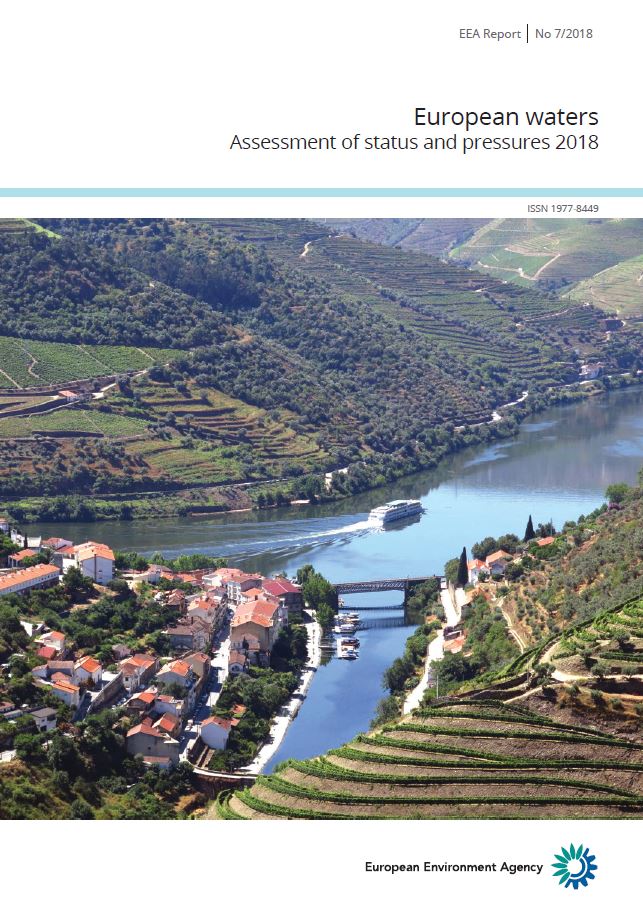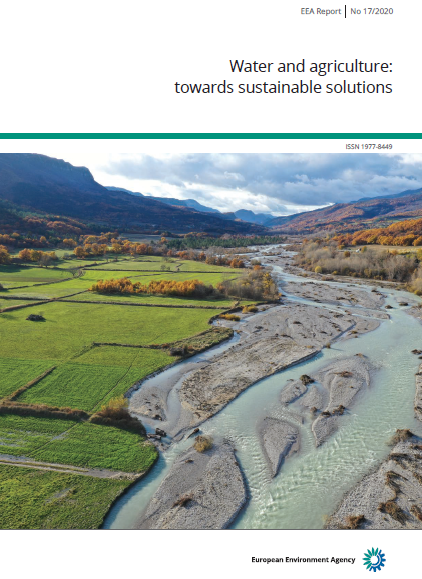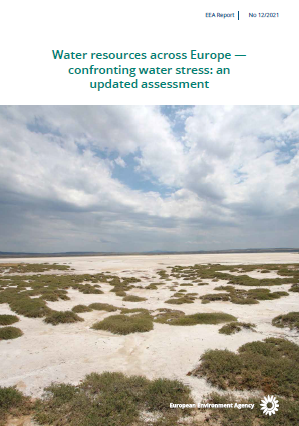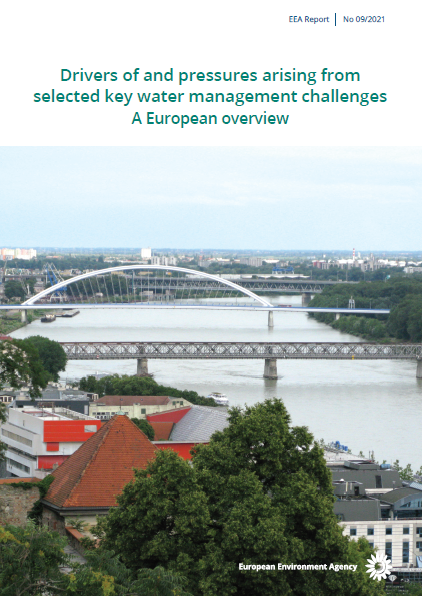On 15 October 2024, the European Environmental Agency (EEA) published their landmark report on the state of water in the EU, the most comprehensive assessment of the status of European groundwater, rivers, lakes and coastal waters to date. Supported by Ecologic Institute through its coordination of the contributions from the European Topic Center for Biodiversity and Ecosystems, the publication analyses various European data flows relevant to water management, with a particular focus on data reported by the Member States under the EU Water Framework Directive. "The State of Water 2024" provides invaluable insights into the current progress in protecting and restoring the quality and health of Europe's waters. The findings indicate that the state of Europe's water has improved little since 2010 and that urgent action is needed to improve Europe's water resilience in the context of increasing pressures from human activity and climate change.
Water stress, droughts and flood risk threatening Europe's water security
"The State of Water 2024" highlights that the severity of water stress, droughts and flooding is increasing under the twin pressure of human activities and climate change. Water stress already affects 30% of Europe's population every year, and even single drought and flood events result in billions of euros of damages. With more hydrological extremes, climate change is posing serious risks to Europe's water security, affecting social cohesion and stability.
Aquatic biodiversity is in an alarming state
The report also highlights that, while the status of some aquatic plants has improved, this has rarely translated into attaining an overall good ecological status. In 2021, only 37% of Europe's surface water bodies achieved a good or improved ecological status. According to data from the Habitats Directive, the majority of protected aquatic habitats and species in the EU are in poor or bad conservation status. In 2018, 17% of protected river, lake, alluvial and riparian habitats were in good conservation status, and 89% of protected wetland habitats had a poor or bad conservation status. The large majority of protected fish and amphibian species are in poor or bad conservation status. Overall, Europe is falling short of its targets to protect and restore freshwater biodiversity.
Chemical pressures as an increasing area of concern
"The State of Water 2024" indicates that in 2021, 29% of surface waters and 77% of the groundwater area were in good chemical status. Pollution pressures include nutrients from wastewater and agriculture, and a whole range of harmful substances ranging from pesticides, mercury and brominated flame retardants to 'new' substances found thanks to improved monitoring such as 'forever chemicals'. Achieving a zero-pollution ambition for water will need continued effort, with an increased focus on reducing and avoiding emissions and the transition to a circular economy.
Pressures and responses in Europe
Findings indicate that the agricultural sector is the major driver behind the ongoing biodiversity loss in aquatic ecosystems, water stress and chemical pollution. Key pressures are the intensification and overuse of fertilizers and pesticides as well as, the overexploitation of water resources through irrigation, drainage and land use change. Other activities significantly affecting Europe's waters are urban development, wastewater discharges, hydropower, irrigation and drinking water, navigation, flood protection and drainage. Overall, countries report that the main pressures on surface waters are linked to pollution from diffuse sources such as atmospheric deposition (52% of surface waters), changes to the physical features and natural flow of rivers, lakes, transitional and coastal waters (51% of surface waters), agriculture (29% of surface waters), point sources such as from wastewater discharges (13% of surface waters) and abstraction (8% of surface waters).
Moving forward
"The State of Water 2024" underscores the urgent need to increase efforts to halt the decline of European water quality and biodiversity. Improved water management is needed to strengthen Europe’s water resilience and reduce pollution. The report proposes several solutions and responses to address Europe's water challenges, highlighting progress and good practices across the continent. The use of nature-based solutions should be expanded to improve water retention and to 'slow the flow' of intense rain to mitigate flooding and lessen the effect of water scarcity and droughts. Reducing water use and improving water efficiency are key to tackling water stress. Furthermore, reconnecting rivers and their floodplains and restoring wetlands and peatlands will help to restore healthy, biodiverse freshwater ecosystems and secure the delivery of essential ecosystem services, such as the supply of good quality water, nutrient recycling, water retention and carbon storage.
The report is available for download.



